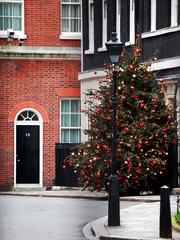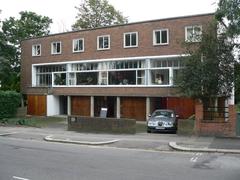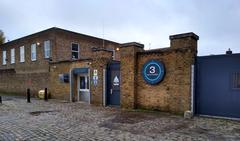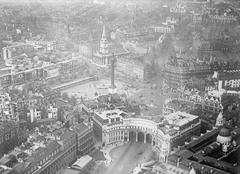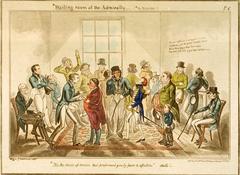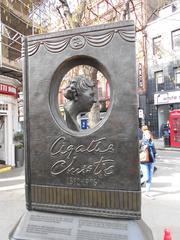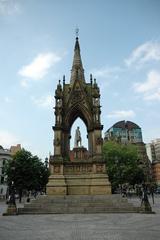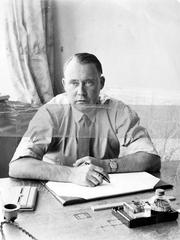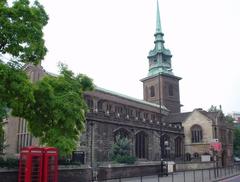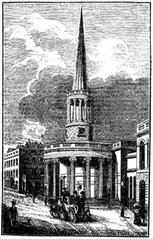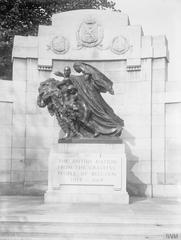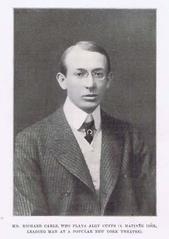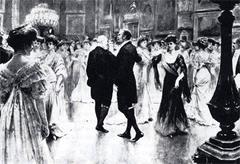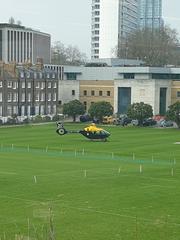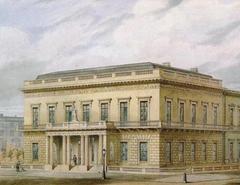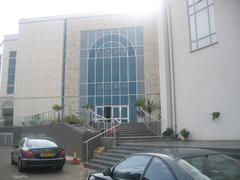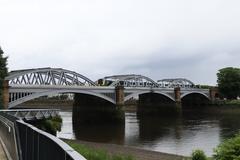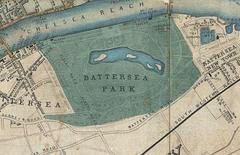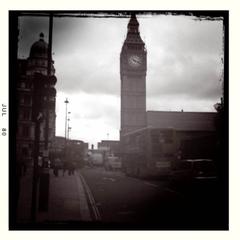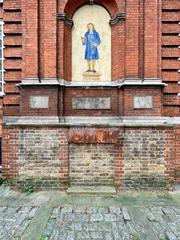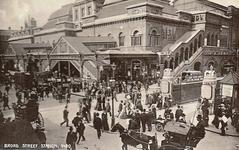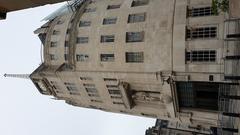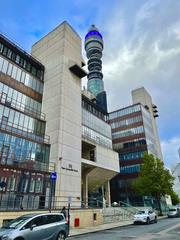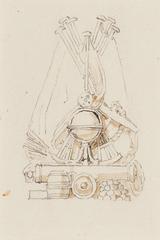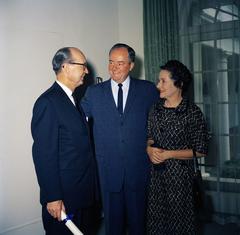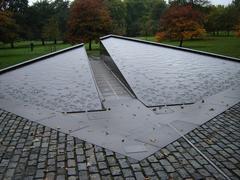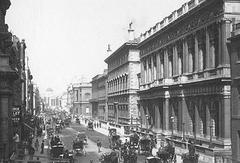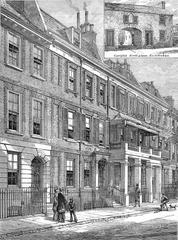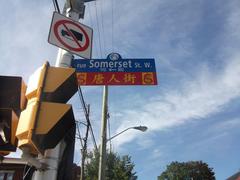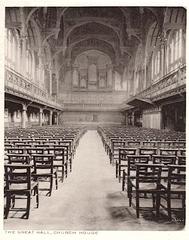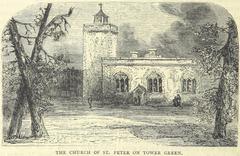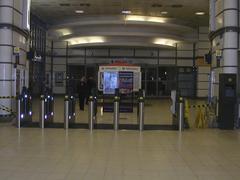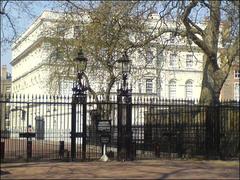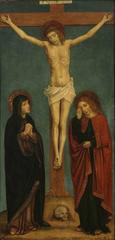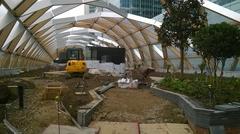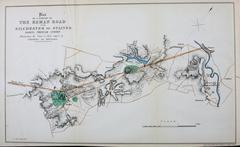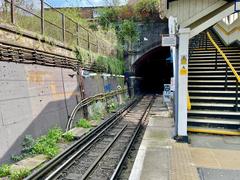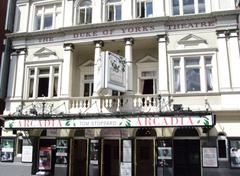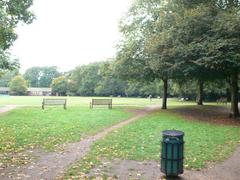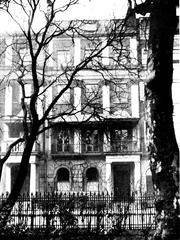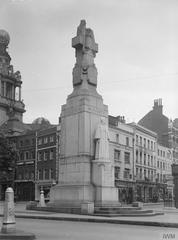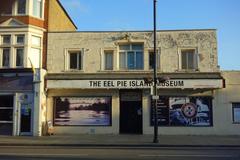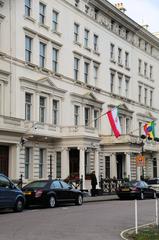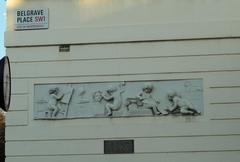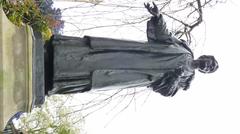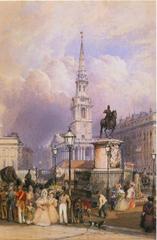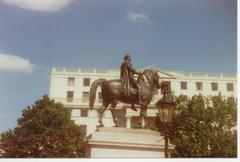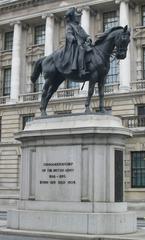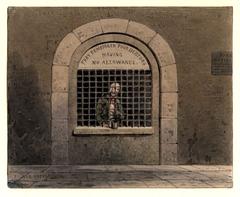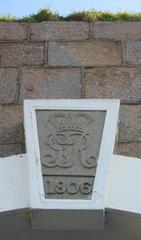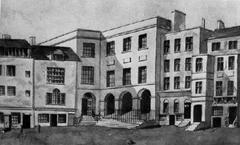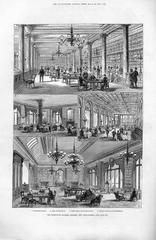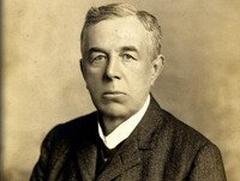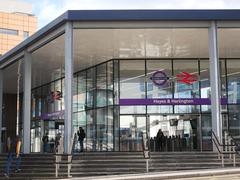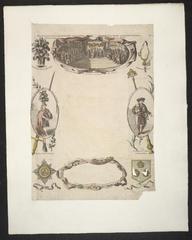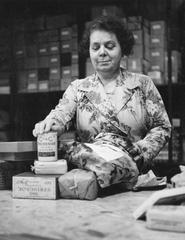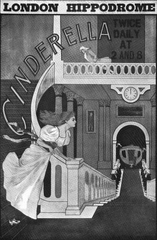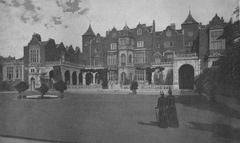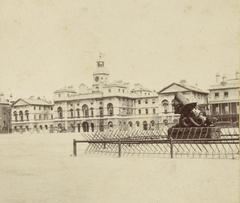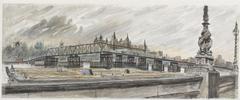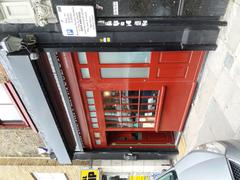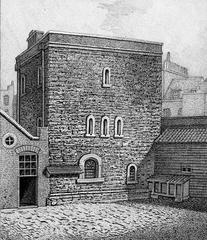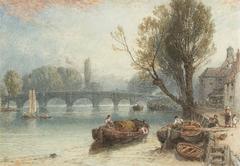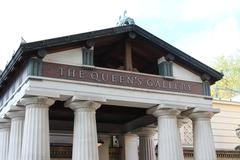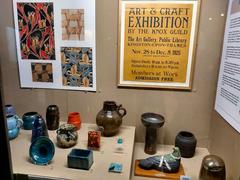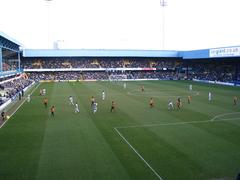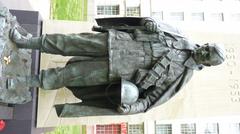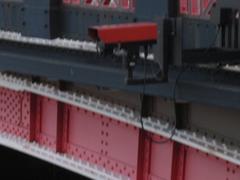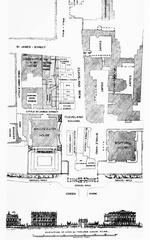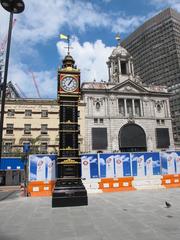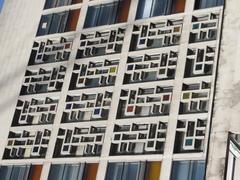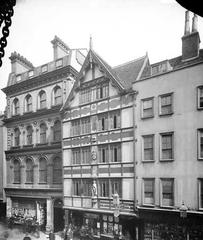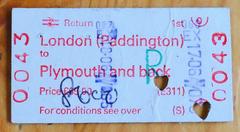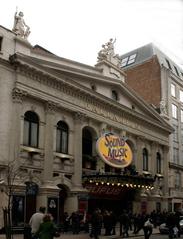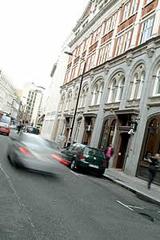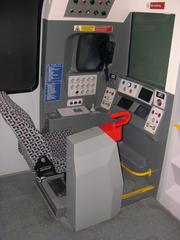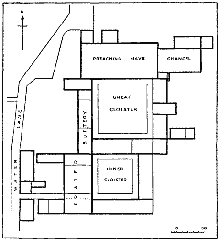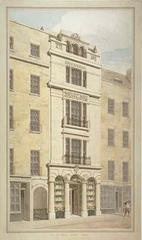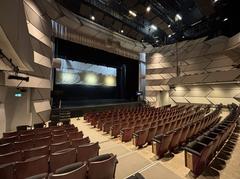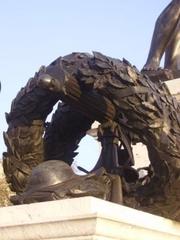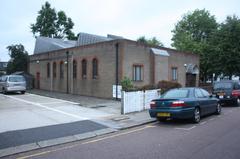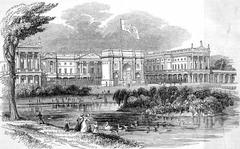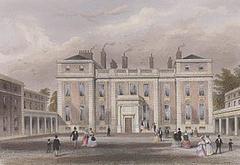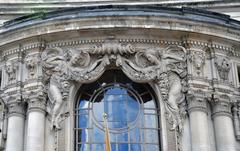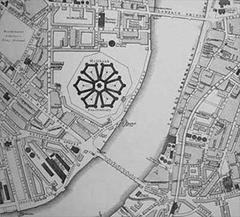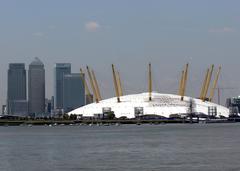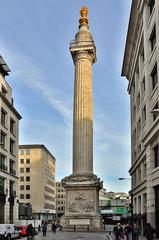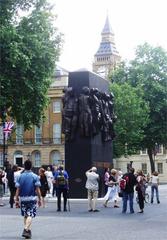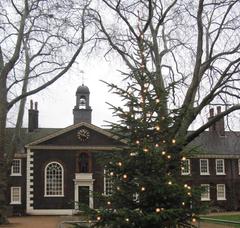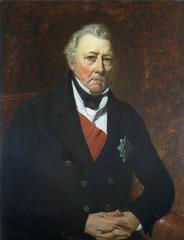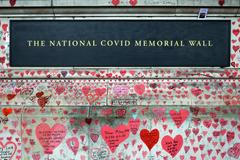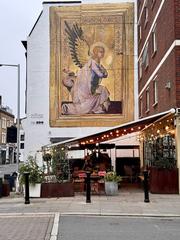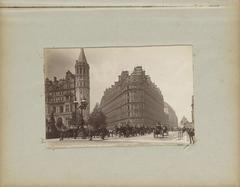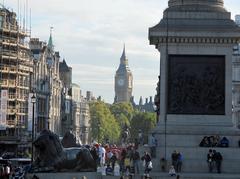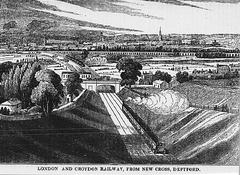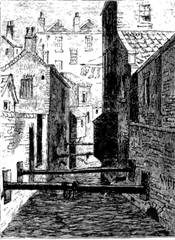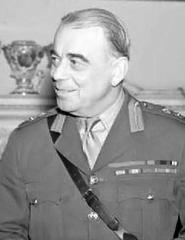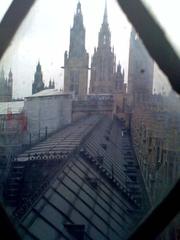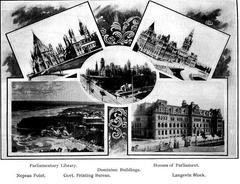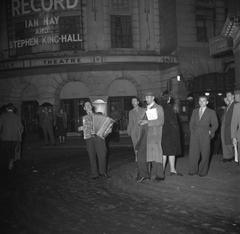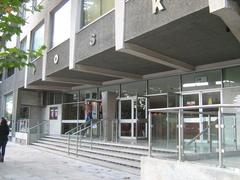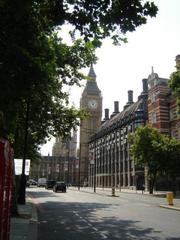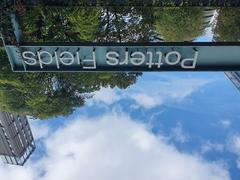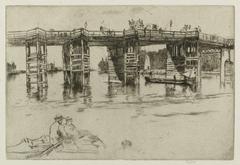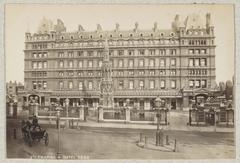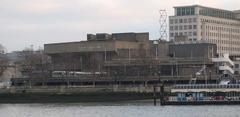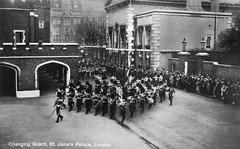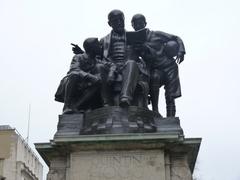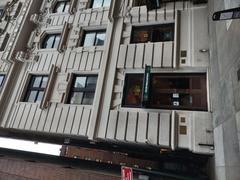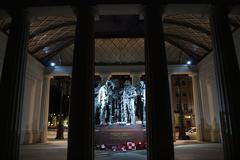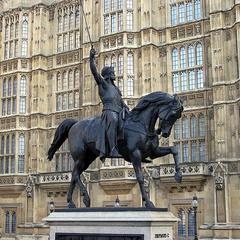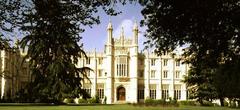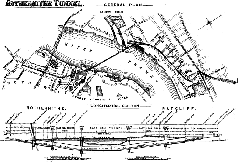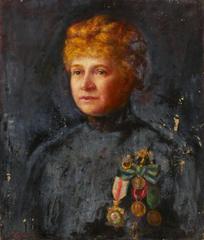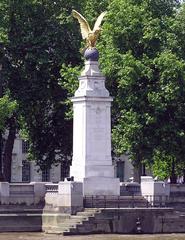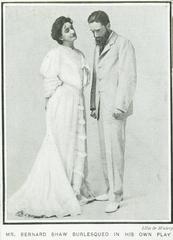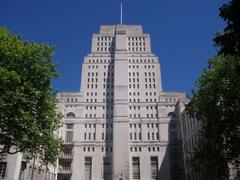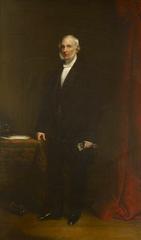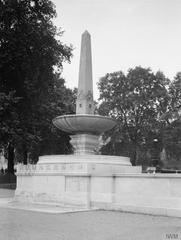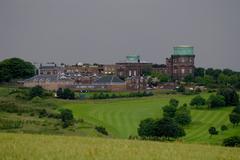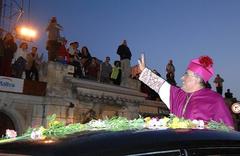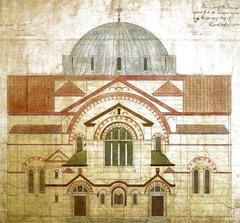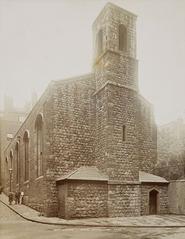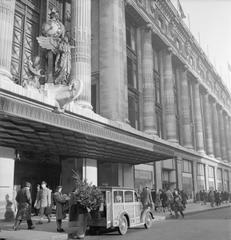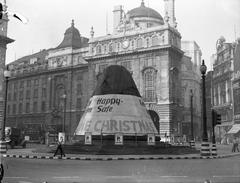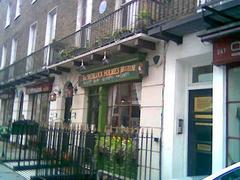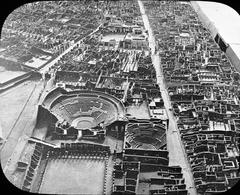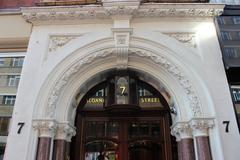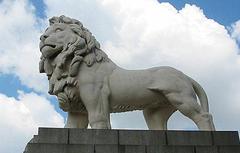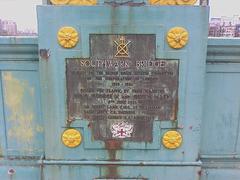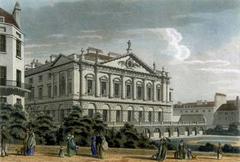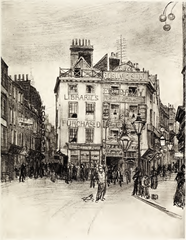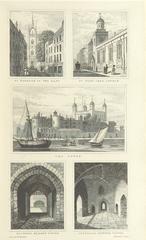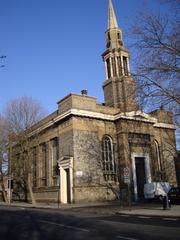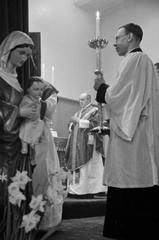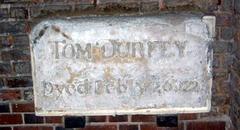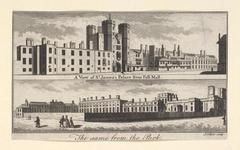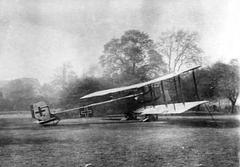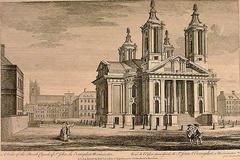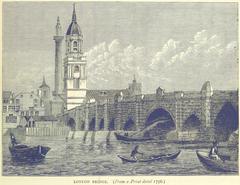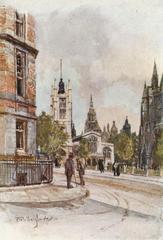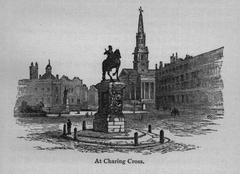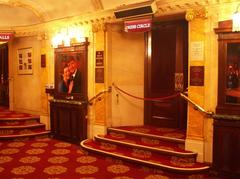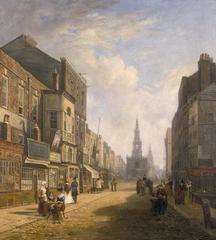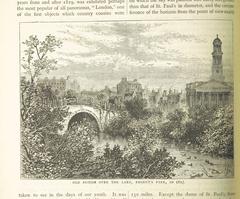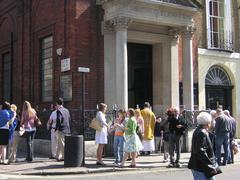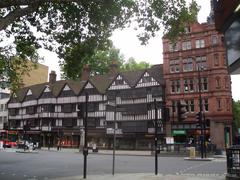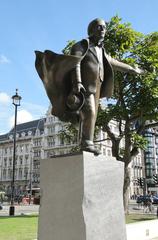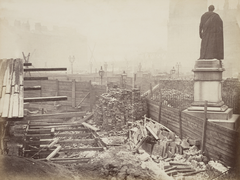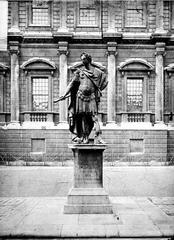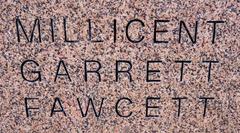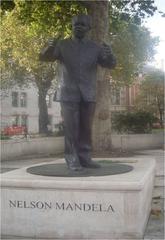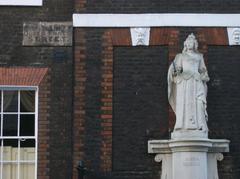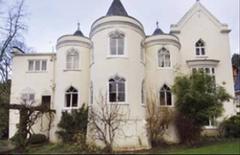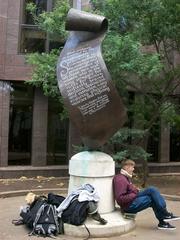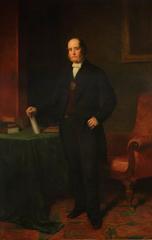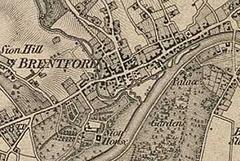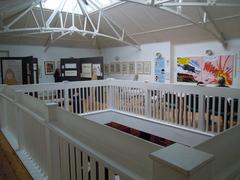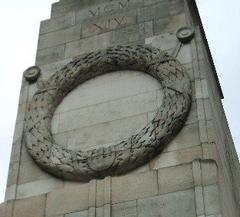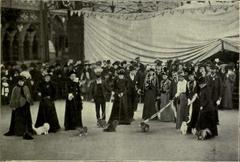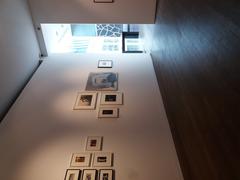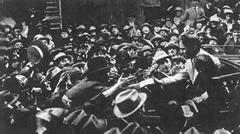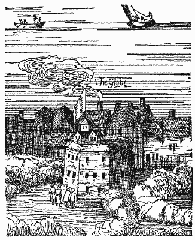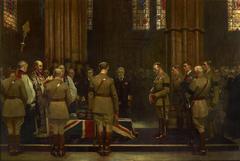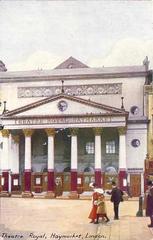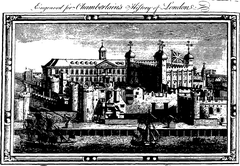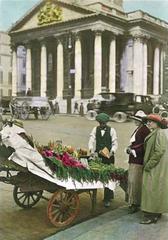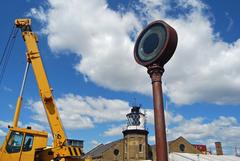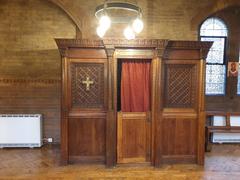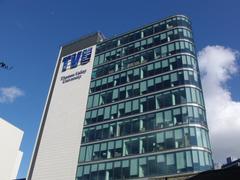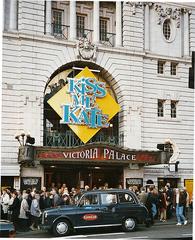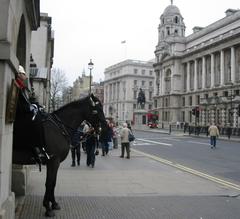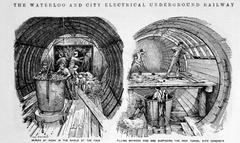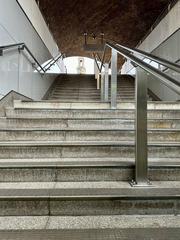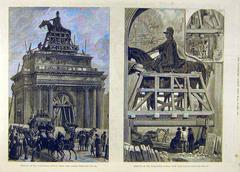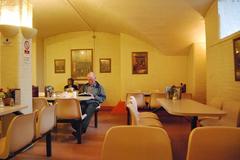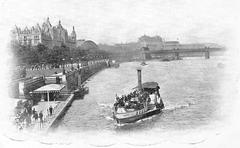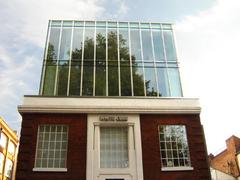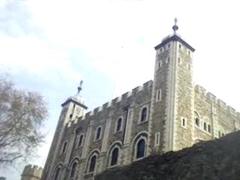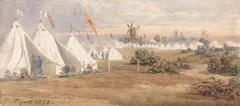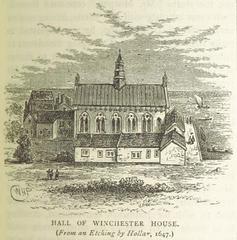Mount Vernon Hospital: Visiting Hours, Tickets, and Visitor Information in London
Date: 04/07/2025
Introduction
Mount Vernon Hospital, located in Northwood on the border of London and Hertfordshire, is a renowned medical institution blending a rich historical legacy with modern healthcare excellence. Since its founding in 1860 as The North London Hospital for Consumption and Diseases of the Chest, it has evolved from a Victorian tuberculosis sanatorium into an internationally recognized centre for cancer treatment and radiotherapy. Its journey is marked by significant medical advances and architectural heritage, including its French Renaissance-style buildings and the groundbreaking work of physicist Louis Harold Gray, which helped establish Mount Vernon as a pioneer in oncology.
Today, Mount Vernon operates under The Hillingdon Hospitals NHS Foundation Trust, offering specialist services through the Mount Vernon Cancer Centre. The site is notable for its tranquil green spaces, accessible facilities, and ongoing commitment to both inclusivity and community engagement. With major redevelopment plans underway, including the proposed relocation of the Cancer Centre to Watford General Hospital, Mount Vernon is poised for a new era in integrated cancer care.
This guide provides visitors, patients, and history enthusiasts with comprehensive information about Mount Vernon Hospital’s history, visiting hours, access, and the cultural and medical significance of this unique London landmark (Wikipedia; Hillingdon Council; AccessAble; Mount Vernon Cancer Centre).
Contents
- Introduction
- Historical Overview
- Origins and Growth
- The Sanatorium Era and Relocation
- Wartime Service and Transition to Oncology
- Modernization and Integration
- Architectural and Cultural Highlights
- Visitor Information
- Visiting Hours, Access, and Facilities
- Tickets, Parking, and Accessibility
- Special Events and Tours
- Mount Vernon Cancer Centre: Redevelopment and Future Plans
- Nearby Attractions
- FAQs
- Conclusion
- Sources
Historical Overview
Origins and Growth
Founded in 1860 as The North London Hospital for Consumption and Diseases of the Chest, Mount Vernon was a response to the Victorian era’s urgent need for specialized treatment of tuberculosis and chest diseases. The hospital quickly expanded, opening a central London outpatient department in 1861 to serve an increasing urban population (Wikipedia).
By 1881, the hospital had moved to purpose-built premises in Hampstead, designed in the French Renaissance style. The move was commemorated by Prince Arthur, Duke of Connaught and Strathearn, and included the construction of Mount Vernon House, initially the residence of the Hospital Secretary and later a nurses’ home (Wikipedia).
The Sanatorium Era and Relocation
In 1904, philanthropy played a pivotal role in Mount Vernon’s relocation to Northwood. Financed by Charles Dunnell Rudd, whose family was affected by tuberculosis, the new Northwood site was chosen for its clean air and tranquil surroundings, ideal for TB recovery (Hillingdon Council). The hospital soon set international standards for sanatoria by emphasizing fresh air, exercise, and progressive treatments, attracting attention from across the British Empire.
Wartime Service and Transition to Oncology
During both World Wars, Mount Vernon Hospital was a key military evacuation and treatment centre, caring for wounded soldiers and managing high patient influxes (Hillingdon Council). As tuberculosis rates declined in the 20th century, the hospital shifted focus to cancer care, becoming a national centre for oncology by the 1930s.
Louis Harold Gray’s arrival in 1933 marked a new era of radiotherapy innovation. His research into radiation effects on biological tissue led to the founding of the Gray Laboratory, a globally respected centre for cancer research. Mount Vernon was the first UK hospital to install a cobalt-60 beam in 1954 and a linear accelerator in 1973, reinforcing its reputation for medical advancement (Hillingdon Council).
Modernization and Integration
The hospital’s integration with the NHS and the relocation of the Marie Curie Hospital to the Mount Vernon site in 1967 expanded its oncology services, enabling it to serve a population of around two million (Hillingdon Council). Today, Mount Vernon Hospital is managed by The Hillingdon Hospitals NHS Foundation Trust, with partnerships extending to the East and North Hertfordshire NHS Trust (AccessAble).
Ongoing modernization efforts include sustainability initiatives such as transitioning to an all-electric ambulance fleet (THH NHS News).
Architectural and Cultural Highlights
Mount Vernon Hospital’s architecture, characterized by its French Renaissance style and later Edwardian additions, reflects its historical significance. The landscaped grounds, chosen for their therapeutic qualities, remain a peaceful retreat within metropolitan London (Wikipedia).
Culturally, Mount Vernon is recognized for its medical milestones, dedicated staff, and volunteer community. Celebrations of staff and volunteers, commemorative plaques, and regular heritage events underscore its ongoing contributions to both medicine and society (THH NHS News).
Visitor Information
Visiting Hours, Access, and Facilities
- General Visiting Hours: Most wards welcome visitors from 2:00 PM to 8:00 PM daily. Some areas, such as the Mount Vernon Cancer Centre, may have different hours (typically 11:00 AM to 8:00 PM). Always confirm with the specific ward or unit before visiting.
- No Tickets Required: As a healthcare facility, Mount Vernon does not require tickets for general access. Special events or guided tours may occasionally require pre-registration.
- Health & Safety: Visitors must comply with hospital health, safety, and privacy policies at all times.
Tickets, Parking, and Accessibility
- Location: Rickmansworth Road, Northwood, Middlesex, HA6 2RN
- Public Transport: Served by bus routes 282, 331, H11, 508, and R1/R2; Northwood Underground Station (Metropolitan line) is a short walk away (Royal Free NHS).
- Parking: On-site parking is available (charges apply except for blue badge holders), but spaces are limited (Mount Vernon Hospital Site Map).
- Accessibility: The hospital offers wheelchair access, accessible parking, lifts, and interpreter services. Detailed accessibility guidance is available via AccessAble.
Special Events and Tours
Although primarily a working hospital, Mount Vernon occasionally hosts open days, guided historical tours, and volunteer-led events. These provide unique opportunities to explore the hospital’s heritage and architecture. Advance inquiry is recommended for tours and event schedules.
Photography is permitted in public outdoor areas but restricted in clinical zones to protect patient privacy.
Mount Vernon Cancer Centre: Redevelopment and Future Plans
Mount Vernon Cancer Centre remains a vital part of the hospital, offering advanced cancer care and specialist services. Due to the outdated nature of current facilities, significant redevelopment is planned.
Relocation and Service Improvements
- Relocation Plans: The Cancer Centre is expected to move to Watford General Hospital, integrating acute medical services and providing improved emergency and surgical support (Mount Vernon Cancer Centre).
- Public Consultation: In 2025, NHS England will begin a public consultation to gather feedback regarding the relocation.
- Funding and Construction: Funding for the move is being secured separately from the main hospital redevelopment. Construction will begin once funding is confirmed.
- Interim Upgrades: Until relocation, an integrated acute oncology service will launch at Watford General Hospital, offering rapid assessment and enhanced care for cancer patients.
Mount Vernon Cancer Centre remains fully operational at Northwood during this transition, with some acute patients transferred to Watford as needed.
Timeline Overview
- 2025: Public consultation and launch of integrated acute oncology service at Watford General Hospital
- 2025–2026: Design, planning, and funding confirmation
- Construction: To begin following funding approval
For detailed updates, visit the Mount Vernon Cancer Centre news page.
Nearby Attractions
Visitors can enjoy Northwood’s charming environment, with nearby attractions such as:
- Ruislip Woods National Nature Reserve
- Northwood Hills Park
- Local shops and cafes
Combining your hospital visit with a stroll in these areas offers a fuller experience of Northwood’s heritage and greenery.
Frequently Asked Questions (FAQ)
Q: What are the visiting hours at Mount Vernon Hospital?
A: Most wards allow visitors from 2:00 PM to 8:00 PM. The Cancer Centre typically allows visits from 11:00 AM to 8:00 PM. Always confirm with the ward or department before visiting.
Q: Do I need tickets to visit?
A: No tickets are required for general access; some special events may require pre-booking.
Q: Is the hospital accessible by public transport?
A: Yes. Multiple bus routes serve the hospital, and Northwood Underground Station is nearby.
Q: Is parking available?
A: Yes, but spaces are limited and charges apply (free for blue badge holders).
Q: Are guided tours available?
A: Guided historical tours may be arranged through volunteer services. Contact the hospital in advance for availability.
Q: Is the hospital accessible for those with disabilities?
A: Yes, with ramps, lifts, disabled parking, and support services available.
Q: Are pets allowed?
A: Only service animals are permitted.
Q: Can I take photographs?
A: Photography is allowed in some public outdoor areas but restricted indoors. Permission is required for photos inside clinical zones.
Conclusion
Mount Vernon Hospital stands as one of London’s most significant medical and historical institutions. Its evolution from a Victorian-era sanatorium to a leader in cancer care is reflected in its architecture, its ongoing research, and its inclusive visitor experience. With clearly defined visiting hours, accessible facilities, and forthcoming developments such as the Cancer Centre relocation, Mount Vernon continues to serve the community while honoring its rich past.
Whether you are seeking healthcare, exploring London’s medical history, or visiting for educational interest, Mount Vernon Hospital offers a rewarding and multifaceted experience.
Call to Action
For the latest visiting hours, event updates, and redevelopment information, visit the official hospital and Mount Vernon Cancer Centre websites. Stay connected via social media, and consider participating in public consultations to help shape the future of this important London landmark.
Sources
- Hillingdon Council: Mount Vernon Hospital
- Wikipedia: Mount Vernon Hospital
- AccessAble: Mount Vernon Hospital Visitor Information
- Mount Vernon Cancer Centre News and Developments
- Mount Vernon Hospital Site Map (The Hillingdon Hospitals NHS Foundation Trust)

